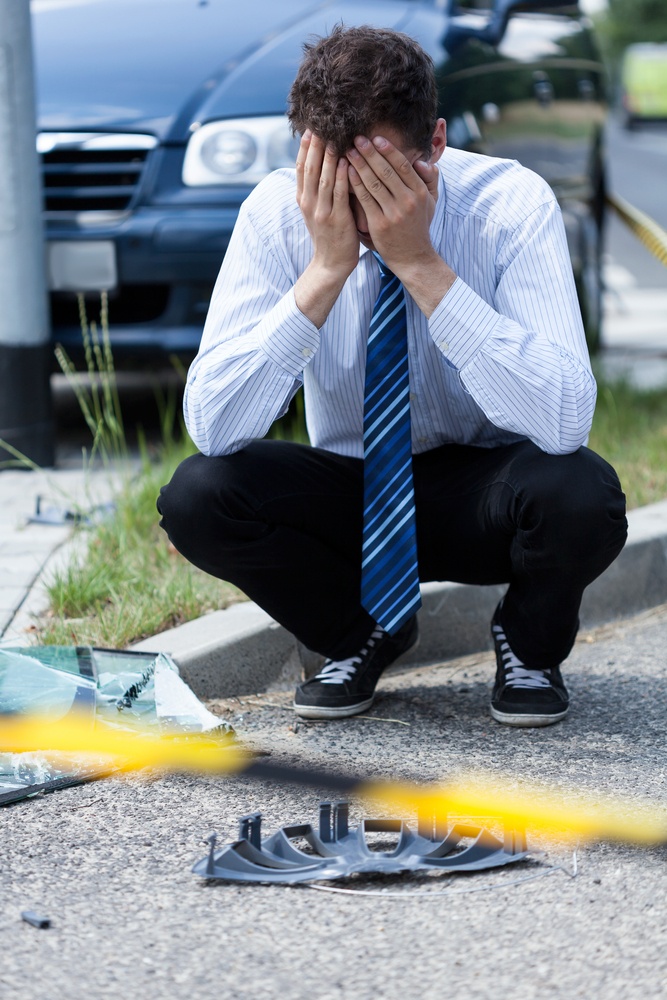Steps that Ensure you will be Protected in the Event of an Injury
 As you come to a full stop at a red light, you can see in your rear-view mirror that the driver pulling up behind you is distracted and going way too fast to stop in time. The inevitable rear-end collision happens while you watch it all in surreal super-slow motion. You begin to shake as fear and adrenaline surge through you. You were just hit by a car. What now?
As you come to a full stop at a red light, you can see in your rear-view mirror that the driver pulling up behind you is distracted and going way too fast to stop in time. The inevitable rear-end collision happens while you watch it all in surreal super-slow motion. You begin to shake as fear and adrenaline surge through you. You were just hit by a car. What now?
You manage to get out of the car, and when you do, you realize your back and neck hurt. What steps should you take?
1) If you’re unable to summon help on your own, ask someone else at the scene to call 911 for you. If you’re in severe pain, do not move or let anyone else move you until qualified medical help arrives unless a hazard, such as a fire, leaking gas, or oncoming traffic, necessities moving you.
2) Make sure that someone on scene calls the police. Request that a police report is filed, and ask for the names and badge numbers of the responding officers.
3) If your injuries are more moderate and you’re able to move freely, exchange personal and basic insurance information with the other driver. If possible, ask any witnesses for their names and phone numbers too. Try to remain calm, cordial, and cooperative, but don’t volunteer any opinions about why the accident happened.
4) Seek immediate medical treatment, even if you think your back and neck pain is minor. The adrenaline and endorphins your body generated during the accident can be masking the symptoms of a far more serious injury.
Even low-speed collisions deliver tremendous force to muscles, tendons, and ligaments, resulting in soft-tissue injuries such as whiplash. These injuries aren’t visible on an X-ray, and it might take several days for the associated pain, swelling, and reduced mobility to manifest. Likewise, the symptoms of a concussion don’t always show up right away. If the impact of the read-end collision was great enough, it’s possible your brain struck the inside of your skull.
Not only does receiving medical attention immediately following your accident ensure your health and safety, it strengthens your personal injury claim. If you wait too long to see your doctor, an insurance company might try to minimize your injuries by claiming that you didn’t hurt enough to seek medical care. This makes it much harder to prove that any physical problems you experience down the road were a direct result of the car accident.
5) Keep detailed notes and document everything to ensure you receive full reimbursement from the insurance company.
- Make a list of the names and addresses of all medical professionals you’re referred to after the accident.
- Take photos of the accident from a few angles, if it is safe to do so, and you are able to do so without further hurting yourself.
- Compile receipts for the medications and equipment you require, such as crutches, canes, braces, and walkers.
- Document all phone calls and emails between yourself and the medical providers who treat you.
- Save all of your medical bills, including prescriptions, special foods, and co-payments.
- Keep a log of travel expenses related to your medical appointments.
- Assemble proof of any financial losses sustained due to the accident such as lost wages.
6) Don’t sign any release forms or settle your personal injury claim until you and your doctor are certain that all of the injuries caused by the collision have fully manifested themselves and healed. If you need help navigating the process, hire a personal injury lawyer who can advocate for your rights and help you get the highest amount possible for your claim.
